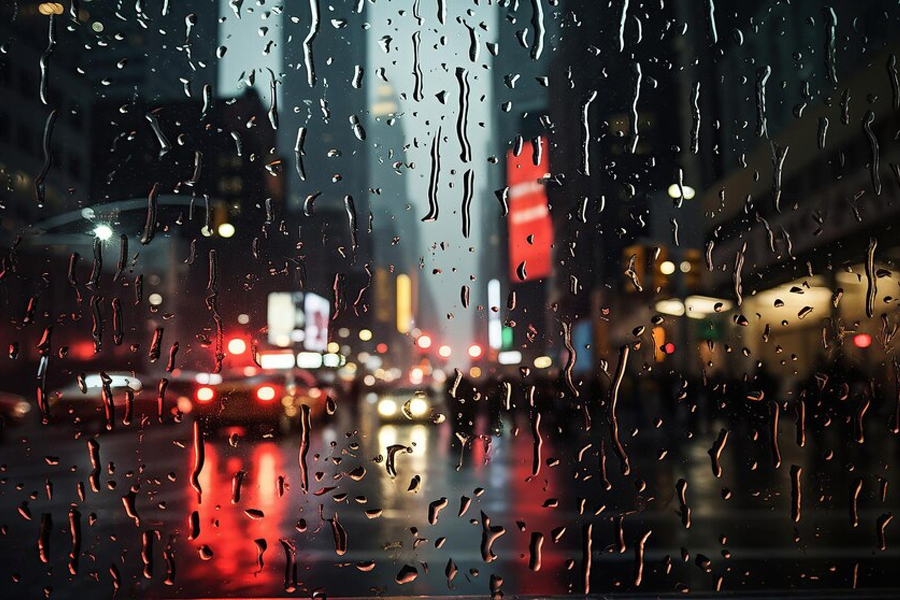Question
What is the ruling on making du’a when it rains?
Bottom Line
It is Sunnah and highly recommended to make du’a when it rains, as it is a time when Allah’s mercy descends and supplications are accepted.
Quick Answer
Rain is a moment of divine mercy. The Prophet ﷺ taught specific du’as to say at rainfall, exposed himself to the drops as a sign of blessing, and informed us that du’a during rain is not rejected. When it becomes excessive, he also taught how to seek relief. Remembering Allah in thunder was the practice of the righteous.
Key Takeaway
- Say: Allahumma sayyiban nafi’an (O Allah, make it a beneficial rain).
- The Prophet ﷺ uncovered himself to the rain as a sign of mercy.
- If rain is heavy, seek relief with the Sunnah du’a.
- At thunder, glorify Allah with the prescribed remembrance.
- Du’a in the rain is among those not rejected.
Detailed Answer
Rain revives the earth, and Islam teaches us to connect it with our hearts. The Prophet ﷺ guided the Ummah to view it as a time of blessing and answered prayers.
When rain begins, the Sunnah is to say:
اللَّهُمَّ صَيِّبًا نَافِعًا (Allahumma sayyiban nafi’an) – O Allah, make it a beneficial rain.
(Sahih al-Bukhari 1032)
Another narration:
اللَّهُمَّ صَيِّبًا هَنِيئًا (Allahumma sayyiban hani’an) – O Allah, make it a wholesome rain.
(Abu Dawud 5099)
The Prophet ﷺ let the rain touch him, saying:
“Because it has just come from its Lord.”
(Sahih Muslim 898)
If rainfall became too heavy, he would say:
اللَّهُمَّ حَوَالَيْنَا وَلاَ عَلَيْنَا … (Allahumma hawalayna wa la ‘alayna …) – O Allah, let it fall around us and not upon us.
(Sahih al-Bukhari 1014)
At thunder, Ibn az-Zubayr would say:
سُبْحَانَ الَّذِي يُسَبِّحُ الرَّعْدُ بِحَمْدِهِ … (Subhan alladhi yusabbih ar-ra‘du bihamdihi wal-mala’ikatu min khifatihi) – Glory be to the One whom thunder glorifies, and so do the angels out of awe.
(Al-Adab al-Mufrad 723)
The Prophet ﷺ said:
“Two supplications are not rejected: the supplication at the call to prayer and under the rain.”
(Abu Dawud 2540)
What This Means for You
Next time it rains, don’t just stay indoors. Step outside, remember Allah, and make du’a. It is a Sunnah moment where physical rain becomes a shower of mercy for the soul.
And Allah knows best.
References
Primary Sources
Hadith
- Sahih al-Bukhari 1014: Du’a when rain is too heavy.
- Sahih al-Bukhari 1032: Saying “Allahumma sayyiban nafi’an.”
- Sahih Muslim 898: The Prophet ﷺ letting the rain touch him.
- Sunan Abi Dawud 5099: Saying “Allahumma sayyiban hani’an.”
- Sunan Abi Dawud 2540: Du’a under rain is not rejected.
- Al-Adab al-Mufrad 723: Ibn az-Zubayr’s du’a at thunder.
Secondary Sources
- Ibn Hajar, Fath al-Bari: Commentary on the hadith of rain.
- Al-Nawawi, Sharh Sahih Muslim: Explanation of du’a during rainfall.
Was this helpful?
Leave Your Comments
© Copyright 2025, All Rights Reserved

